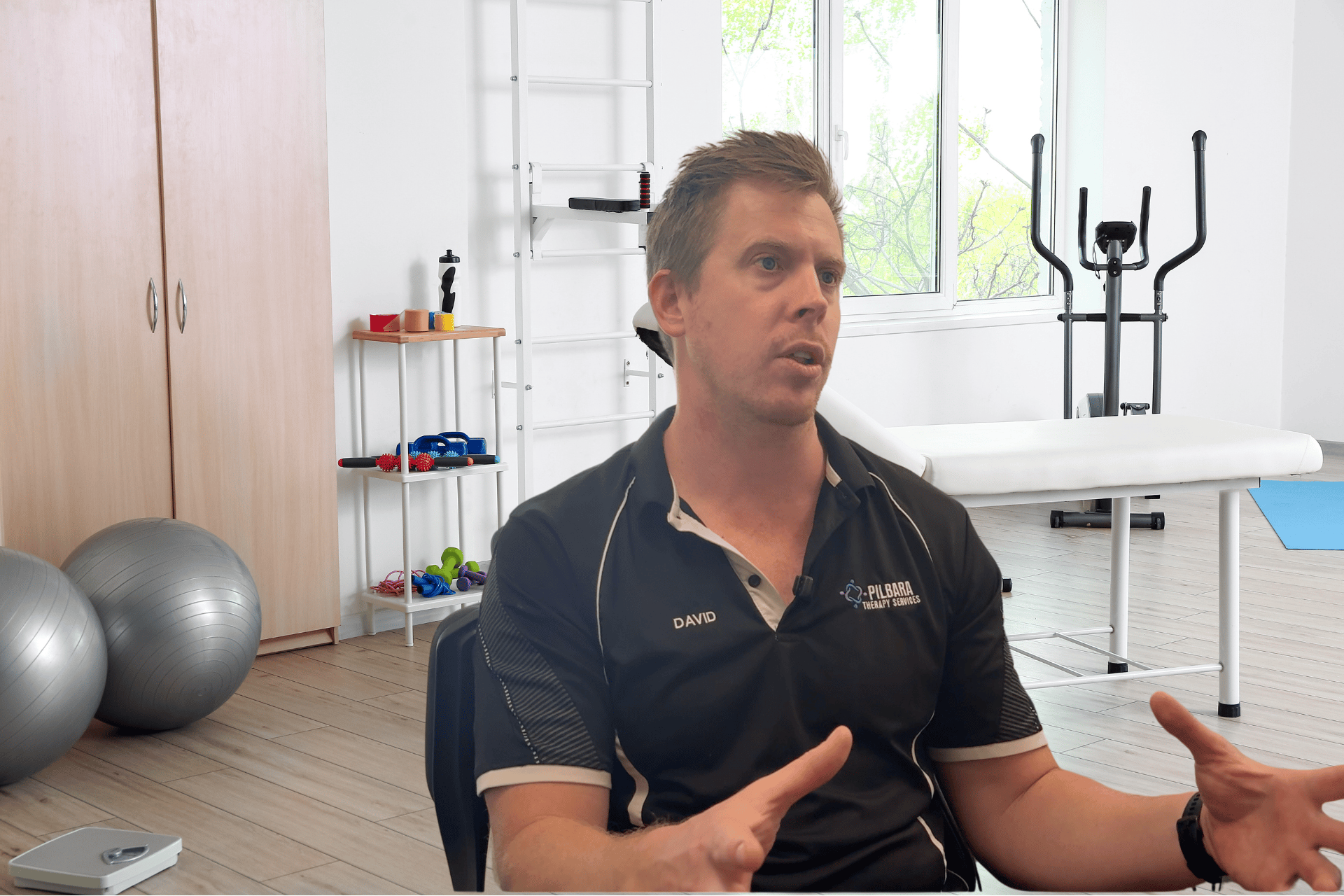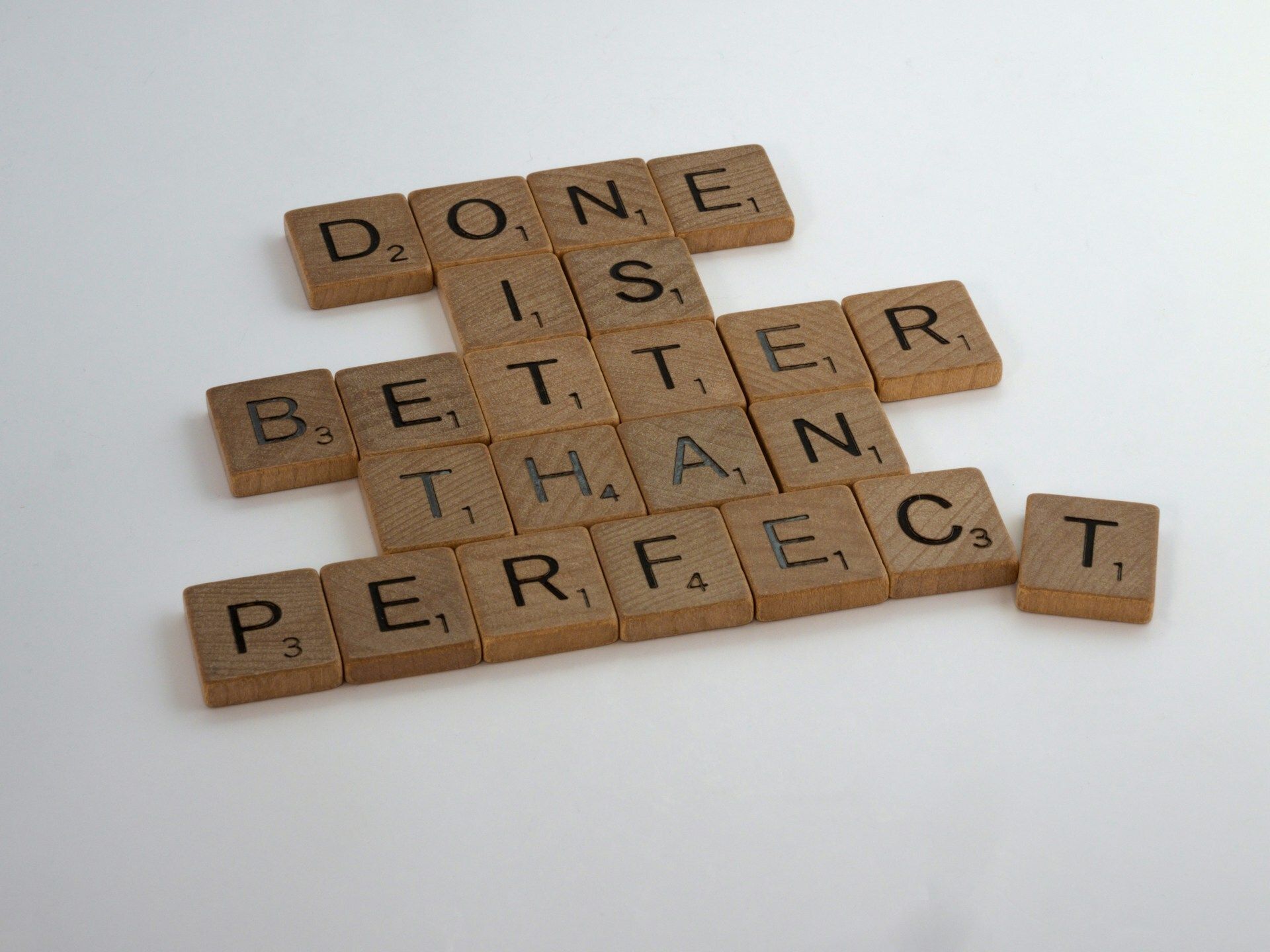- Get Active for Life
- Posts
- Get Active for Life: Issue #9
Get Active for Life: Issue #9
Perfectionism Prevents Progress
In this issue:
Perfectionism: the perfect trip?
David’s Advice
“Perfectly Imperfect” challenge
and more…
Hello there,
The Perfect Trap
Let's talk about the elephant in the room – the perfectly organised, colour-coordinated elephant that's been stopping you from getting started.
You know the one. It whispers things like "You need the right gear first," or "Wait until Monday to start properly," or our personal favourite: "If you can't do it perfectly, why bother doing it at all?"
Here's the thing about perfectionism and exercise: it's not actually about being perfect. It's about being paralysed. Because perfectionism doesn't make us perfect – it makes us procrastinators. It convinces us that unless we can commit to an hour-long workout every single day, there's no point in taking a 10-minute walk. Unless we can follow a meal plan to the letter, we might as well order takeaway. Unless we look like a fitness influencer, we shouldn't even try.
But here's what we've learned from talking to hundreds of people on their wellness journeys: the most successful ones aren't the most perfect. They're the most persistent. They're the ones who show up imperfectly, consistently, and with a healthy dose of self-compassion.
The perfectionism paradox
Research shows that perfectionism actually sabotages the very goals it claims to pursue. When we set impossibly high standards, we set ourselves up for what psychologists call "all-or-nothing thinking." Miss one workout? The whole week is ruined. Eat one biscuit? Might as well finish the packet. Can't run for 30 minutes? Walking doesn't count.
This black-and-white thinking keeps us stuck in a cycle of starting and stopping, trying and "failing," when the real failure is in not recognising that imperfect action beats perfect inaction every single time.
Good enough is actually perfect
What if we told you that "good enough" is not only acceptable – it's optimal? That the person who walks for 15 minutes three times a week will see more benefits than the person who plans the perfect hour-long routine but never actually does it?
Your body doesn't care if your workout clothes match. Your heart doesn't judge you for taking the lift sometimes. Your muscles don't know if you're following a "proper" program or just dancing badly to your favourite song in the kitchen.
This week, we're giving you permission to be gloriously, beautifully imperfect. To start before you're ready. To do something rather than nothing. To celebrate progress over perfection.
Because the truth is, you don't need to be perfect to get started. You just need to be willing to be wonderfully, imperfectly human.
So here's our challenge: do something active this week that's deliberately imperfect. Take a wonky selfie mid-workout. Try a new exercise badly. Walk in the wrong direction. Embrace the mess, the mistakes, and the magnificent reality of being human.
After all, perfect is the enemy of done. And done is always better than perfect.
🕺 Interesting People
David’s Advice

David - Physiotherapist, Remote Western Australia
Even health professionals struggle with exercise. Here's why everyone finds it hard - and what actually works.
David Rigby is a physiotherapist running a large allied health practice in remote Western Australia, and he has a confession: even he gets intimidated walking into a gym. In this honest conversation, David shares professional insights about why exercise is universally challenging and what actually helps people succeed long-term.
Professional insights you'll discover:
Why humans are naturally "inert" and how movement inertia affects everyone
The real barriers that stop people exercising (hint: it's not just laziness)
Why exercise myths like "squats will wear out your knees" are actually harmful
The difference between motivation and choice - and why choice wins every time
Why exercising alone sets most people up for failure
How your identity shapes your exercise behaviour more than you realise
The one thing that beats perfect technique, optimal programming, and expensive equipment
Key Quote: "I don't believe in motivation. I just believe in a choice of yes and no. The people that really succeed are the people that make the direct choice to do something again and again and again."
This isn't about perfect exercise routines or extreme fitness transformations. It's about understanding the psychology and barriers that make exercise challenging for everyone - including healthcare professionals - and the evidence-based strategies that actually create lasting change.
You can watch our interview with David here.
📝 Health & Wellness News
What we’ve been reading this week
🧠 All-or-Nothing Exercise Thinking Linked to Mental Health Issues
New research from ACE Fitness reveals that perfectionist thinking patterns around exercise are strongly linked to anxiety and depression. The study found that people who use "absolutist" language about fitness ("I never exercise enough," "I'm a complete failure") are more likely to abandon exercise routines entirely. Breaking free from this mindset involves recognising that any movement is better than none.
Sources: ACE Fitness
🏃♀️ Exercise Motivation Improves When Perfectionism Decreases
Research from the International Journal of Environmental Research and Public Health found that people who reduced perfectionist thinking showed significant improvements in exercise motivation and adherence. The study tracked participants over 12 weeks and found that those who learned to accept "good enough" workouts were 73% more likely to maintain their exercise routines.
Source: MDPI
🎪 Fear of Failure in Exercise Linked to Perfectionist Thinking
Frontiers in Psychology published research examining how fear of making mistakes during exercise prevents people from starting fitness routines. The study found that perfectionist individuals often avoid new activities because they fear looking incompetent, leading to a cycle of inactivity. Researchers recommend starting with private, low-stakes activities to build confidence.
Sources: Frontiers in Psychology
🌟 Self-Compassion Training Improves Exercise Consistency
Research shows that self-compassion training specifically helps perfectionists maintain more consistent exercise habits. Participants who learned to treat exercise setbacks with kindness rather than self-criticism showed 50% better long-term adherence to physical activity goals.
Sources: ScienceDirect
🏃♀️ Middle-Aged Women Struggle with Exercise Motivation
A new study published in Cureus found that while 61.8% of middle-aged women understand the health benefits of exercise, many lack the motivation to actually start. The research revealed that 56.9% were intrinsically motivated but still struggled with barriers to physical activity, highlighting the gap between knowing what's good for us and actually doing it.
Sources: Cureus
🧘♀️ 3 ways to build brain-boosting social connections
Harvard Health reveals three evidence-based strategies for building brain-boosting social connections that protect against cognitive decline. Research shows that people with strong social ties are significantly less likely to experience dementia, with loneliness increasing dementia risk by up to 40%. The strategies focus on rekindling old friendships, prioritizing quality relationships over quantity, and embracing various ways to connect including digital tools.
Sources: Harvard Health
👍 Actionable Tip of the Week

Do it even if it is not perfect!
The "Perfectly Imperfect" Challenge
This week, deliberately do something imperfectly in your movement practice. Set a timer for exactly 7 minutes (not 10, not 5 – the "imperfect" number of 7). Do whatever movement feels right in that moment – dancing badly to one song, doing wonky yoga poses, or walking in circles around your living room.
The goal isn't to exercise "properly" – it's to prove to yourself that imperfect movement still counts. Notice how your body feels afterward. Spoiler alert: it'll feel exactly the same as if you'd done it "perfectly."
Try this today: Set that 7-minute timer right now and move however feels good. Celebrate the beautiful imperfection of it all.
Have no fear of perfection - you'll never reach it
Salvador Dali
😊 Fun, Quirky, Interesting
The other side of Health and Life
☀️ Hotter Days Might Be Making Us Eat More Sugar
As temperatures rise, so does our craving for sweet treats. New research has found that for every 1.8 degrees Fahrenheit of warming, U.S. households consume an extra 0.7 grams of added sugar per person per day, mostly from sugary drinks and frozen desserts.
Link: CNN
🔬 Scientists Are Cooking Up Some Weird Foods in the Lab
From lab-grown meat to 3D-printed meals, scientists are exploring new ways to create sustainable and nutritious food. These innovations could change the way we eat in the future, offering alternatives to traditional farming and agriculture.
Link: Science Sensai
🍞 Some Refined Grains Are Surprisingly Good for You
We’re often told to avoid refined grains, but new research shows that some can be a valuable source of nutrients. By providing fiber, iron, and B vitamins, certain grain foods can actually contribute to a healthier diet.
Link: University of Washington
🐕 Golden Retrievers: The Ultimate Heart Healers
This heartwarming video explores how Golden Retrievers have become the ultimate therapy dogs, offering unconditional love and comfort to people in need. With their gentle, intelligent temperament and remarkable ability to sense emotions, these furry healers provide therapeutic support to children, veterans with PTSD, and individuals with mental health conditions.
Link: YouTube
Thanks for reading!
Was this newsletter forwarded to you? Get your own! Subscribe here
How did you like today's newsletter? |
We love hearing from our readers. Do you have a suggestion, idea or some feedback? Tell us about it here.
Disclaimer: The content of this newsletter does not constitute medical advice. You should always take the advice of a qualified health professional as required.